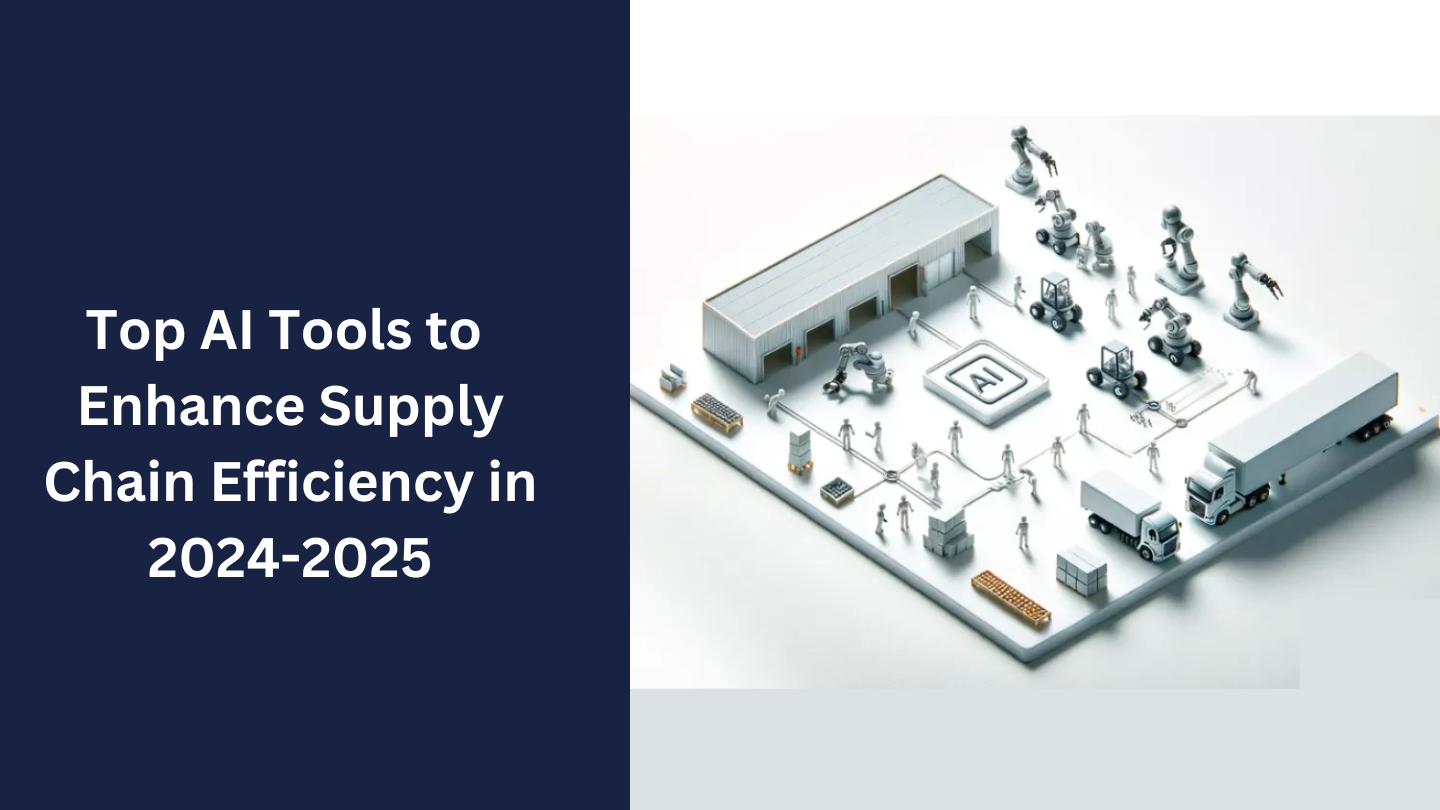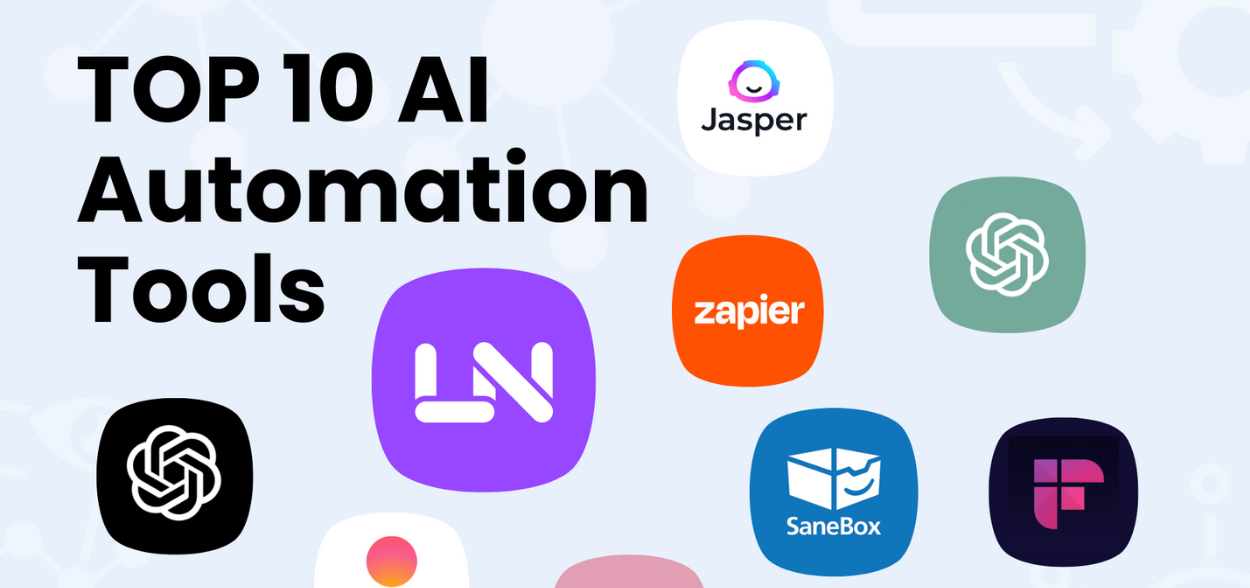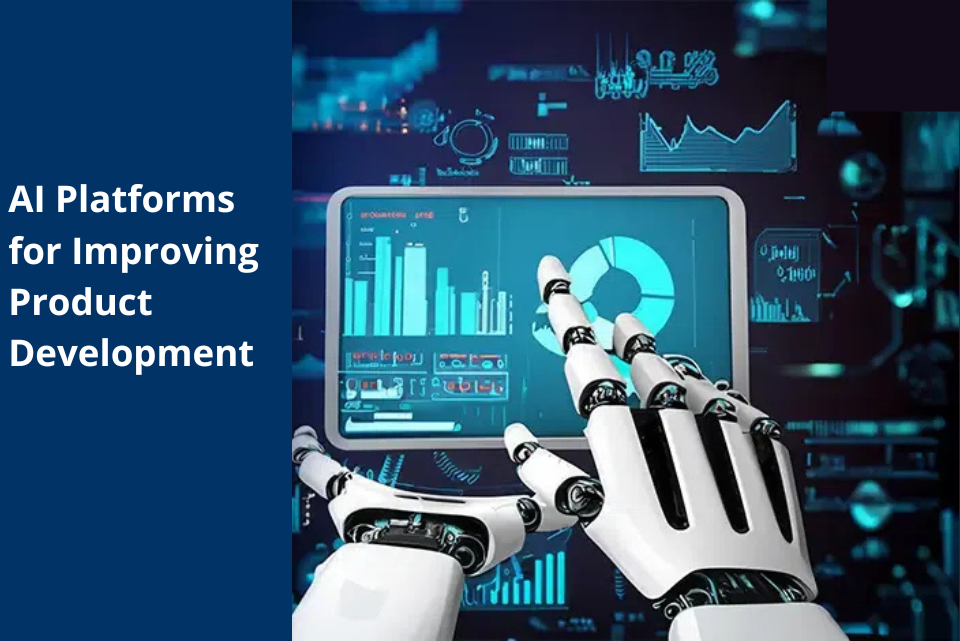As global supply chains grow increasingly complex, businesses are turning to artificial intelligence (AI) to enhance efficiency, reduce costs, and manage risks. AI-driven tools provide predictive analytics, optimise logistics, and streamline processes, helping organisations make data-driven decisions and improve operational performance. In 2024, the use of AI in supply chain management has become indispensable for companies looking to stay competitive in an ever-changing landscape.
This article will explore the top AI tools designed to enhance supply chain efficiency, their benefits, and how businesses can use them to gain a strategic advantage.
The Role of AI in Supply Chain Optimisation
AI plays a crucial role in supply chain optimisation by enabling businesses to automate routine tasks, gain insights from large datasets, and improve decision-making processes. Traditional supply chain management can be labour-intensive and prone to human error, but AI tools help by automating key functions, providing real-time updates, and offering predictive capabilities that mitigate risks. Find out how you can improve supply chain in manufacturing.
Key Benefits of AI in Supply Chain Management:
- Demand Forecasting: AI tools can predict future demand trends by analysing historical sales data and market conditions, allowing businesses to avoid stockouts and overproduction.
- Inventory Management: AI helps optimise inventory levels by accurately forecasting demand and monitoring stock. Tools like Llamasoft are used by many businesses to manage inventory in real time, ensuring that resources are allocated efficiently.
- Logistics and Route Optimisation: AI can calculate the most efficient routes for delivery, reducing fuel costs and improving delivery times. Platforms like Project44 offer real-time transportation visibility to optimise logistics and improve on-time delivery performance.
- Supplier Relationship Management: AI tools analyse supplier performance and identify potential risks in the supply chain, enabling businesses to select and manage suppliers more effectively.
Top AI Tools to Improve Supply Chain Efficiency
In 2024, several AI-driven platforms stand out for their ability to streamline and enhance supply chain operations. Below are the top tools that can help businesses optimise their supply chain performance.
1. Llamasoft (Coupa)
Llamasoft, now part of Coupa, is a leading provider of AI-driven supply chain analytics. Llamasoft uses machine learning to model, optimise, and predict supply chain outcomes. By integrating real-time data, it enables businesses to optimise supply chain design, improve demand forecasting, and enhance decision-making. Llamasoft is particularly useful for companies that need to manage complex, global supply chains.
2. Project44
Project44 is a real-time supply chain visibility platform that helps businesses track their shipments, optimise routes, and enhance on-time delivery performance. By leveraging AI, Project44 provides predictive analytics and real-time updates on shipment status, helping companies respond proactively to delays or disruptions in the supply chain. This tool is highly beneficial for logistics companies and retailers aiming to increase supply chain transparency.
3. ClearMetal
ClearMetal specialises in predictive logistics and real-time shipment tracking. It uses AI to predict potential disruptions in the supply chain, such as delays or bottlenecks, and helps businesses mitigate risks by offering actionable insights. By integrating ClearMetal into their operations, companies can improve inventory accuracy, reduce waste, and enhance overall supply chain performance.
4. SAP Integrated Business Planning (IBP)
SAP IBP is an AI-powered tool designed to enhance supply chain planning through advanced analytics and real-time visibility. SAP IBP enables businesses to synchronise supply chain processes with demand, inventory management, and production planning. With machine learning capabilities, SAP IBP helps predict demand fluctuations and manage resources effectively, making it a comprehensive solution for supply chain optimisation.
5. Logility
Logility is a supply chain optimisation tool that uses AI to enhance demand planning, inventory management, and transportation optimisation. Logility’s AI algorithms analyse historical and real-time data to forecast demand more accurately and optimise supply chain operations. By reducing excess inventory and improving shipment accuracy, Logility helps businesses streamline their operations and reduce costs.
How AI Tools Can Revolutionise the Supply Chain
AI-powered tools can revolutionise supply chain operations in several ways, making them more agile, efficient, and resilient. With the ability to process vast amounts of data in real-time, AI enables companies to respond to changes and disruptions faster than traditional methods. This makes the supply chain more adaptable to market fluctuations, changing consumer behaviour, and unexpected events.
Key Operational Improvements with AI Tools:
- Risk Management: AI can predict potential risks in the supply chain by analysing external factors such as weather conditions, political events, or supplier issues. Tools like Project44 offer real-time risk insights, enabling businesses to take preemptive actions to avoid disruptions.
- Cost Reduction: By optimising routes, improving inventory management, and reducing delays, AI tools help businesses cut costs associated with inefficiencies and errors. For example, ClearMetal provides accurate forecasts and insights that help minimise wastage and reduce operating costs.
- Improved Customer Satisfaction: AI-powered tools provide real-time visibility into shipments and delivery statuses, improving the accuracy of delivery estimates. This enhances customer satisfaction, especially in industries like retail, where on-time delivery is critical.
- Sustainability: AI can help businesses reduce their carbon footprint by optimising transportation routes, reducing fuel consumption, and managing resources more efficiently. Platforms like Llamasoft offer sustainability-focused features that help companies optimise their supply chain with environmental goals in mind.
Future Trends in AI and Supply Chain Efficiency
The integration of AI into supply chain management will continue to grow in 2024-2025 and beyond. Businesses are expected to adopt more advanced AI-driven solutions that offer deeper insights, greater automation, and enhanced efficiency. Some emerging trends include:
1. AI-Driven Autonomous Supply Chains:
In the near future, AI could enable fully autonomous supply chains where every stage—from procurement to delivery—is managed by AI systems. This would drastically reduce the need for human intervention and create a self-optimising supply chain.
2. Blockchain Integration:
Combining AI with blockchain technology will enable businesses to enhance transparency and security in their supply chains. Blockchain provides an immutable record of transactions, while AI can analyse these records to predict and mitigate potential risks. This combination will be especially valuable in industries like pharmaceuticals and food, where traceability is critical.
3. Hyper-Personalisation:
AI will enable hyper-personalised supply chains, where businesses can tailor their operations based on individual customer preferences and behaviours. This level of personalisation will require sophisticated AI tools that can analyse large datasets in real-time and provide actionable insights.
For companies looking to stay ahead of these trends, adopting AI tools early is crucial. If you’re interested in how AI can enhance your supply chain efficiency, book a consultation to discuss AI-driven solutions tailored to your business needs.
The Growing Demand for AI Talent in Supply Chain Management
As AI continues to transform supply chains, there is a rising demand for professionals skilled in managing and implementing AI-powered tools. Companies are actively seeking talent that can navigate the complexities of AI in supply chain management and help drive operational efficiency.
Why a Career in AI and Supply Chain is Lucrative:
- High Demand for AI Experts: Industries such as manufacturing, retail, and logistics are increasingly relying on AI to optimise supply chains, creating a high demand for professionals with expertise in AI tools like Llamasoft, SAP IBP, and Project44.
- Diverse Career Opportunities: From data analysts to supply chain managers, AI is opening up a wide range of roles within supply chain management. This sector offers numerous opportunities for career growth and development, especially for those skilled in AI technologies.
If you’re interested in a career working with AI in supply chain management, explore opportunities and apply now to join a forward-thinking team.












Pingback: Top AI Tools and Platforms for Businesses in 2024-2025
Pingback: The Future of AI Tools in Manufacturing (2024-2025)
Pingback: AI Tools to Improve Decision-Making in Retail (2024-2025)